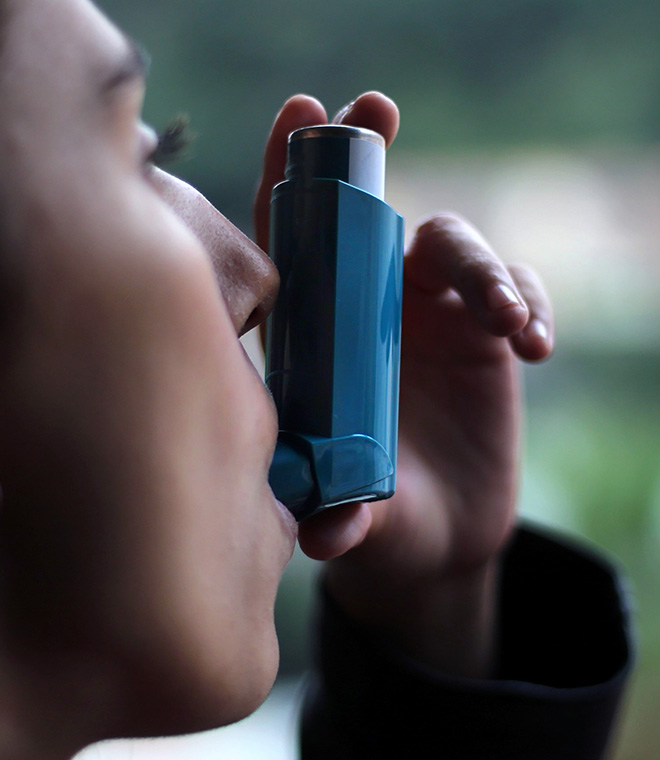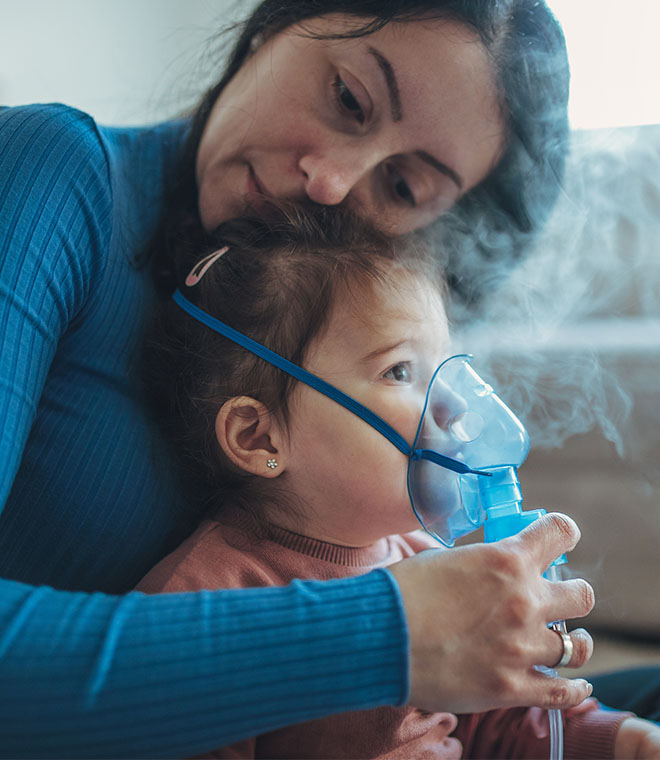Health
Allergy-induced asthma
By Nancy Kupka, PhD, RN Jan 04, 2021 • 4 min
Asthma is a lung disease that affects people of all ages.
Respiratory airways become responsive to different stimuli, including allergens such as pet dander and irritants such as smoke and other chemicals. Muscles around the airway constrict, and the lining of airways become inflamed and swollen, resulting in increased mucus production.
Symptoms of allergy-induced asthma
Allergy-induced asthma symptoms in adults include wheezing, coughing, shortness of breath and chest tightness. Asthma attack symptoms are frightening, as it feels as if someone is sitting on your chest or you are unable to breathe.
Asthma can be broken down into two groups based on the causes of an attack: allergic and nonallergic, although most people with asthma display characteristics of both. At least 30% of adult asthma cases are triggered by allergies.
Preventive steps
If asthma symptoms are caused by allergies, there are steps one can take to control known or potential triggers in your environment:
- Allergy-proof the house for dust, mold, cockroaches and other common indoor allergens.
- Allergens contained in the feces, saliva, body parts and old shells of cockroaches trigger asthma attacks in individuals who are sensitized to cockroach allergen. Once cockroaches are eliminated, special attention must be given to cleaning the area to get rid of any remaining allergens.
- To limit the number of dust mites in your home, use synthetic rather than feather and down pillows, nylon rather than wool blankets, cover your mattress and pillows with a dust mite barrier, keep the mattress clean, change the bedding and vacuum the bed base weekly. Limit drapes, rugs and other fabrics in the room and, if possible, reduce indoor humidity to below 50%.
- Reduce your outdoor activities when the pollen count or ozone level is high. You can't stay inside all the time, but try to stay inside if it's windy and warm, in the morning and night (pollen counts are highest then), shower at night to remove pollen from skin and clothes and keep your house free from mold.
- Choose foods that don't contribute to your asthma or allergy symptoms. Read ingredient labels thoroughly, including advisory labels such as "may contain" for food and nonfood products, like lotions and soaps, and check with servers before ordering in restaurants.
- Evaluate your workplace for possible allergens and take the necessary steps to reduce your exposure to them. Over 300 known or suspected substances in the workplace can cause or worsen asthma.
Although chronic, asthma can be effectively controlled. With an accurate diagnosis, people with asthma can fully participate in most activities by avoiding triggers, following a treatment plan with maintenance medications or rescue inhalers and adopting an action plan for asthma attack. Be sure to work with a provider to develop a plan to meet your needs.
Published January 2021.



